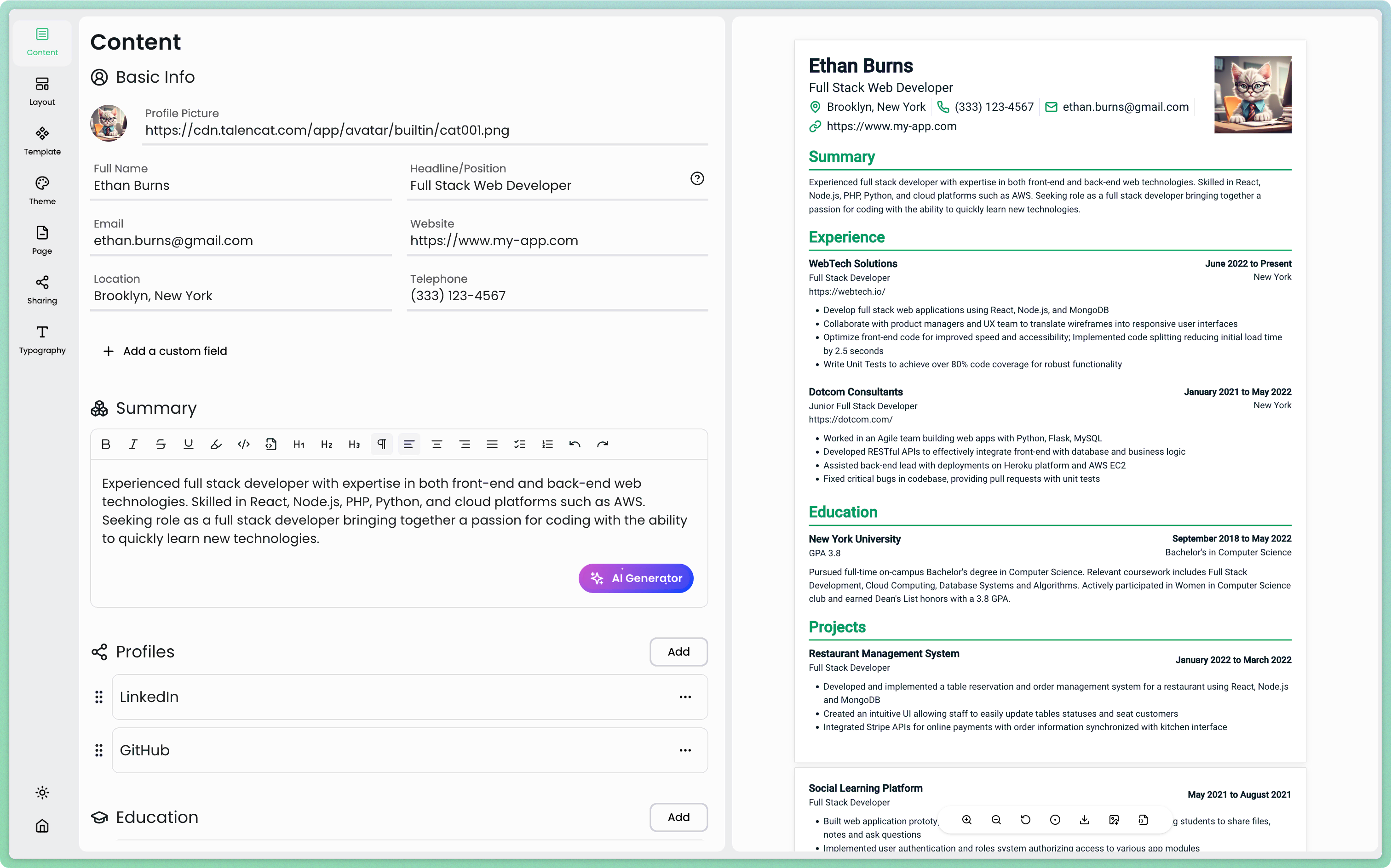Licensed Practical Nurses (LPNs) play a crucial role in the healthcare system, providing essential care and support to patients across various medical settings. To excel in this demanding profession, LPNs must possess a diverse set of skills that encompass clinical expertise, interpersonal abilities, technical proficiency, and organizational competence.
This comprehensive guide explores the essential LPN skills checklist, offering valuable insights for both aspiring and current LPNs looking to enhance their professional capabilities and deliver exceptional patient care.
Introduction to LPN Skills
The healthcare industry is constantly evolving, and with it, the expectations placed on Licensed Practical Nurses. As frontline caregivers, LPNs must be equipped with a wide array of skills to meet the diverse needs of patients and contribute effectively to the healthcare team. Mastering these skills not only ensures the delivery of high-quality care but also paves the way for career advancement and personal growth within the nursing profession.
Importance of LPN Skills in Healthcare
LPN skills form the foundation of effective patient care and are integral to the smooth functioning of healthcare facilities. These skills enable LPNs to:
- Provide safe and competent patient care
- Assist registered nurses and physicians in various medical procedures
- Contribute to positive patient outcomes
- Ensure compliance with healthcare regulations and standards
- Adapt to the ever-changing healthcare landscape
By continuously developing and refining their skills, LPNs can enhance their professional value, improve patient satisfaction, and contribute to the overall quality of healthcare delivery.
Overview of LPN Roles and Responsibilities
LPNs are essential members of the healthcare team, working under the supervision of registered nurses and physicians. Their roles and responsibilities may vary depending on the healthcare setting and state regulations, but typically include:
- Monitoring patients' health status and reporting changes to the healthcare team
- Administering medications and treatments as prescribed
- Assisting with personal care and daily living activities
- Performing basic medical procedures and tests
- Educating patients and their families on health maintenance and disease prevention
- Maintaining accurate patient records and documentation
Understanding the scope of LPN practice is crucial for developing a comprehensive skills set that aligns with professional expectations and legal requirements.
Comprehensive LPN Skills Checklist
To excel in their roles, LPNs must possess a diverse range of skills that span clinical, interpersonal, technical, and organizational domains. This comprehensive LPN skills checklist serves as a guide for both aspiring and practicing LPNs to assess their current abilities and identify areas for improvement.
Clinical Skills
Clinical skills form the core of an LPN's practice, enabling them to provide direct patient care and assist in medical procedures. Mastery of these skills is essential for ensuring patient safety and promoting positive health outcomes.
Medication Administration
Proper medication administration is a critical responsibility of LPNs. This skill set includes:
- Understanding different medication routes (oral, intramuscular, subcutaneous, etc.)
- Accurately calculating medication dosages
- Verifying medication orders and patient information
- Administering medications safely and efficiently
- Monitoring patients for adverse reactions and side effects
- Documenting medication administration accurately
LPNs must stay updated on medication protocols and best practices to ensure patient safety and compliance with healthcare regulations.
Intravenous Therapy
Intravenous (IV) therapy is a common medical intervention that LPNs may be involved in, depending on state regulations and facility policies. Key skills in this area include:
- Initiating and maintaining IV lines
- Monitoring IV flow rates and adjusting as needed
- Recognizing and addressing complications related to IV therapy
- Administering IV medications and fluids as prescribed
- Ensuring proper infection control practices during IV procedures
Proficiency in IV therapy allows LPNs to contribute effectively to patient care and assist in more complex medical treatments.
Wound Care
Wound care is an essential skill for LPNs, as they often encounter patients with various types of wounds. This skill set encompasses:
- Assessing wound characteristics and healing progress
- Cleaning and dressing wounds using appropriate techniques
- Applying wound care products and dressings
- Educating patients on proper wound care and prevention of complications
- Documenting wound status and treatment accurately
Effective wound care skills contribute to faster healing, reduced infection rates, and improved patient comfort.
Vital Signs Monitoring
Accurate vital signs monitoring is fundamental to patient assessment and care. LPNs should be proficient in:
- Measuring and recording blood pressure, pulse, respiration, and temperature
- Using various types of equipment for vital signs measurement
- Recognizing normal ranges and identifying significant deviations
- Reporting abnormal vital signs to the appropriate healthcare team members
- Documenting vital signs accurately in patient records
Mastery of vital signs monitoring enables LPNs to detect early signs of patient deterioration and contribute to timely interventions.
Infection Control Practices
Maintaining a safe and hygienic healthcare environment is crucial for preventing the spread of infections. LPNs must be well-versed in:
- Proper hand hygiene techniques
- Use of personal protective equipment (PPE)
- Implementing standard precautions and transmission-based precautions
- Proper handling and disposal of contaminated materials
- Educating patients and families on infection prevention measures
Adherence to infection control practices protects both patients and healthcare workers from healthcare-associated infections.
Basic Life Support (BLS)
LPNs must be prepared to respond to medical emergencies and provide basic life support when necessary. This skill set includes:
- Performing cardiopulmonary resuscitation (CPR)
- Using automated external defibrillators (AEDs)
- Recognizing and responding to choking emergencies
- Assisting with basic airway management techniques
- Participating in emergency response teams within healthcare facilities
Maintaining current BLS certification is essential for LPNs to ensure they can respond effectively in critical situations.
Interpersonal Skills
While clinical skills are crucial, interpersonal skills are equally important for LPNs to provide holistic patient care and collaborate effectively with healthcare team members.
Communication Skills
Effective communication is the cornerstone of quality patient care and teamwork in healthcare settings. LPNs should develop proficiency in:
- Active listening and empathetic communication with patients and families
- Clear and concise verbal reporting to healthcare team members
- Professional written communication in patient records and documentation
- Non-verbal communication and body language awareness
- Adapting communication styles to diverse patient populations and cultural backgrounds
Strong communication skills enable LPNs to build trust with patients, facilitate better care coordination, and contribute to a positive healthcare environment.
Empathy and Compassion
Empathy and compassion are essential qualities that enhance patient care and satisfaction. LPNs should strive to:
- Demonstrate genuine concern for patients' well-being
- Provide emotional support to patients and families during challenging times
- Respect patients' dignity and privacy
- Show patience and understanding when dealing with difficult or confused patients
- Recognize and address patients' emotional and psychological needs
By cultivating empathy and compassion, LPNs can create a more supportive and healing environment for their patients.
Teamwork and Collaboration
Healthcare delivery is a team effort, and LPNs must be skilled collaborators. Key aspects of teamwork include:
- Communicating effectively with other healthcare professionals
- Respecting the roles and expertise of team members
- Contributing to a positive work environment
- Participating in team meetings and care planning sessions
- Offering and accepting constructive feedback
Strong teamwork skills enable LPNs to work seamlessly with other healthcare providers, ensuring coordinated and comprehensive patient care.
Technical Skills
As healthcare technology continues to advance, LPNs must develop and maintain technical skills to effectively utilize various medical equipment and systems.
Proficiency with Medical Equipment
LPNs should be comfortable operating and troubleshooting common medical equipment, including:
- Patient monitoring devices (e.g., cardiac monitors, pulse oximeters)
- Infusion pumps and feeding pumps
- Blood glucose meters
- Nebulizers and oxygen delivery systems
- Assistive devices for mobility and patient transfers
Familiarity with medical equipment allows LPNs to provide efficient care and respond quickly to patient needs.
Electronic Health Records (EHR) Management
With the widespread adoption of electronic health records, LPNs must be proficient in:
- Navigating EHR systems and locating patient information
- Accurately entering patient data and clinical notes
- Utilizing EHR features for medication administration and documentation
- Maintaining patient privacy and confidentiality when using EHR systems
- Troubleshooting basic EHR issues and seeking appropriate technical support
Effective EHR management skills contribute to improved care coordination, reduced medical errors, and enhanced patient safety.
Patient Assessment Techniques
LPNs should be skilled in conducting basic patient assessments, including:
- Performing head-to-toe physical assessments
- Recognizing normal and abnormal findings
- Assessing pain levels using standardized scales
- Conducting focused assessments based on patient conditions
- Documenting assessment findings accurately and concisely
Proficiency in patient assessment techniques enables LPNs to identify changes in patient status and contribute to timely interventions.
Organizational Skills
Effective organizational skills are crucial for LPNs to manage their workload, prioritize tasks, and ensure high-quality patient care.
Time Management
LPNs often care for multiple patients with diverse needs, making time management essential. Key skills include:
- Prioritizing tasks based on patient acuity and urgency
- Creating and following a schedule for routine care activities
- Delegating tasks appropriately to nursing assistants or other support staff
- Anticipating and planning for potential interruptions or emergencies
- Utilizing time-saving strategies without compromising care quality
Strong time management skills help LPNs provide timely care and reduce the risk of errors or omissions.
Record Keeping
Accurate and thorough record keeping is crucial for continuity of care and legal compliance. LPNs should be proficient in:
- Documenting patient care activities and observations in a timely manner
- Using appropriate medical terminology and abbreviations
- Ensuring legibility and clarity in written documentation
- Maintaining confidentiality and security of patient records
- Adhering to facility policies and legal requirements for documentation
Effective record keeping skills contribute to better communication among healthcare team members and improved patient outcomes.
Prioritization of Patient Care
LPNs must be able to prioritize patient care based on acuity and urgency. This skill set includes:
- Assessing patient needs and determining care priorities
- Balancing routine care tasks with urgent patient issues
- Adapting care plans in response to changing patient conditions
- Communicating priorities effectively to other team members
- Making sound decisions under pressure
The ability to prioritize patient care ensures that the most critical needs are addressed promptly and efficiently.
Crafting an LPN Skills List with TalenCat CV Maker
As a Licensed Practical Nurse (LPN), having a well-organized skills list is crucial for your resume. TalenCat CV Maker offers an excellent solution to create a comprehensive LPN skills list within your resume. Follow this tutorial to showcase your nursing expertise effectively.
Step 1: Log in to TalenCat CV Maker and click the "+ Create Resume" button in the top right corner to start a new resume.

Step 2: Name your resume, perhaps "LPN Skills Resume," and click "Create with Example" to start with a pre-filled template.

Step 3: In the resume editor, locate the "Skills" section. Here, you'll input your LPN skills list. The right panel will show a real-time preview of your resume.

Step 4: Use TalenCat's AI-powered suggestions to enhance your LPN skills list. Click on the AI icon next to the Skills section for tailored recommendations.

Once you've completed your LPN skills list and the rest of your resume, you can easily export it as a PDF or enable the online sharing feature for convenient distribution to potential employers.
Remember to include key LPN skills such as:
- Patient care and monitoring
- Medication administration
- Wound dressing and care
- Vital signs measurement
- Electronic Health Records (EHR) management
- Communication with patients and healthcare team
TalenCat CV Maker simplifies the process of creating a professional LPN resume, ensuring your skills are presented clearly and effectively to potential employers.
Essential Qualities for LPNs
Adaptability and Flexibility
The healthcare environment is dynamic and often unpredictable. LPNs should demonstrate:
- Willingness to adapt to changing patient needs and care plans
- Flexibility in adjusting work schedules or assignments
- Openness to learning new skills and technologies
- Ability to remain calm and focused during emergencies or high-stress situations
- Readiness to take on new responsibilities as needed
Adaptable and flexible LPNs are better equipped to handle the challenges of healthcare and provide consistent, high-quality care.
Attention to Detail
Precision and accuracy are crucial in healthcare. LPNs must cultivate strong attention to detail, including:
- Double-checking medication dosages and patient information
- Carefully following protocols and procedures
- Noticing subtle changes in patient condition
- Maintaining accurate and complete documentation
- Ensuring cleanliness and organization in the work environment
Attention to detail helps prevent errors, improve patient safety, and enhance the overall quality of care.
Ethical and Professional Conduct
LPNs are expected to uphold high ethical standards and maintain professional conduct at all times. This includes:
- Adhering to the nursing code of ethics
- Maintaining patient confidentiality and privacy
- Demonstrating integrity and honesty in all interactions
- Respecting cultural diversity and individual patient preferences
- Maintaining appropriate professional boundaries with patients and colleagues
Ethical and professional conduct builds trust with patients, families, and healthcare team members, contributing to a positive healthcare environment.
Resources for LPN Skills Development
Continuous learning and skill development are essential for LPNs to stay current in their practice and advance their careers. Various resources are available to support LPN skills development and professional growth.
Online Checklists and Templates
Numerous online resources offer LPN skills checklists and templates to help nurses assess their competencies and track their progress. These resources include:
Examples of LPN Skills Checklists
- Nursing Skills Checklist by NursingCenter:
- Comprehensive list of clinical skills categorized by body systems
- Self-assessment ratings for each skill (Novice, Competent, Expert)
- Space for notes and improvement plans
- LPN Competency Checklist by RN.com:
- Detailed checklist covering various nursing procedures
- Includes columns for date of competency demonstration and evaluator initials
- Sections for both clinical and non-clinical skills
Printable Resources for Practicing Skills
- Medication Administration Checklist:
- Step-by-step guide for safe medication administration
- Includes "Five Rights" of medication administration
- Space for notes on specific medications and precautions
- Wound Care Documentation Template:
- Structured form for assessing and documenting wound characteristics
- Includes fields for wound measurements, appearance, and treatment applied
- Space for progress notes and care plan updates
These online resources provide valuable tools for LPNs to assess their skills, identify areas for improvement, and track their professional development.
Educational Programs and Workshops
Continuing education is crucial for LPNs to enhance their skills and stay updated on the latest healthcare practices. Options include:
- Online Continuing Education Courses:
- Websites like Nurse.com and CEUfast offer a wide range of LPN-specific courses
- Topics cover clinical skills, patient care, and professional development
- Flexible, self-paced learning options with certificates upon completion
- In-Person Workshops and Seminars:
- Local hospitals and nursing associations often offer skills workshops
- Hands-on training in areas such as wound care, IV therapy, and emergency response
- Opportunities for networking and learning from experienced practitioners
- Certification Programs:
- Specialty certifications in areas like gerontology, IV therapy, or wound care
- Demonstrate advanced knowledge and skills in specific areas of practice
- Can lead to career advancement and increased job opportunities
Participating in educational programs and workshops helps LPNs stay current with best practices and expand their skill set.
Mentorship and Networking Opportunities
Connecting with experienced nurses and peers can provide valuable support and guidance for skill development. Opportunities include:
- Formal Mentorship Programs:
- Many healthcare facilities offer mentorship programs for new LPNs
- Pairing with experienced nurses for guidance and support
- Structured learning experiences and skill development opportunities
- Professional Nursing Associations:
- Organizations like the National Association of Licensed Practical Nurses (NALPN)
- Access to resources, conferences, and networking events
- Opportunities to connect with LPNs from diverse healthcare settings
- Online Nursing Communities:
- Forums and social media groups dedicated to LPN discussions
- Platforms for sharing experiences, asking questions, and seeking advice
- Access to a wide network of nursing professionals
Engaging in mentorship and networking opportunities allows LPNs to learn from others' experiences, gain new perspectives, and stay connected with the broader nursing community.
Conclusion
Recap of the Importance of a Comprehensive LPN Skills List
A comprehensive LPN skills list serves as a roadmap for professional development and excellence in nursing practice. By mastering a diverse range of clinical, interpersonal, technical, and organizational skills, LPNs can provide high-quality patient care, contribute effectively to healthcare teams, and advance their careers. The skills outlined in this guide form the foundation of LPN practice, enabling nurses to meet the complex demands of modern healthcare and adapt to evolving industry standards.
Encouragement for Continuous Learning and Skills Improvement
The field of healthcare is constantly evolving, with new technologies, treatments, and best practices emerging regularly. As such, LPNs must embrace a mindset of lifelong learning and continuous skill improvement. By actively seeking out opportunities for professional development, staying current with industry trends, and regularly assessing their skills, LPNs can ensure they remain competent, confident, and valuable members of the healthcare workforce.
Aspiring and practicing LPNs are encouraged to use this comprehensive skills checklist as a tool for self-assessment and goal-setting. Identify areas for improvement, seek out relevant training and education, and engage with mentors and peers to enhance your skills. Remember that each skill mastered not only contributes to your professional growth but also directly impacts the quality of care you provide to patients.
As you progress in your LPN career, take pride in your accomplishments and the positive impact you make in patients' lives. Your commitment to developing and refining your skills will not only benefit you personally but will also contribute to the advancement of the nursing profession as a whole. Embrace the challenges and opportunities that come with continuous learning, and let your passion for nursing drive you towards excellence in all aspects of your practice.




